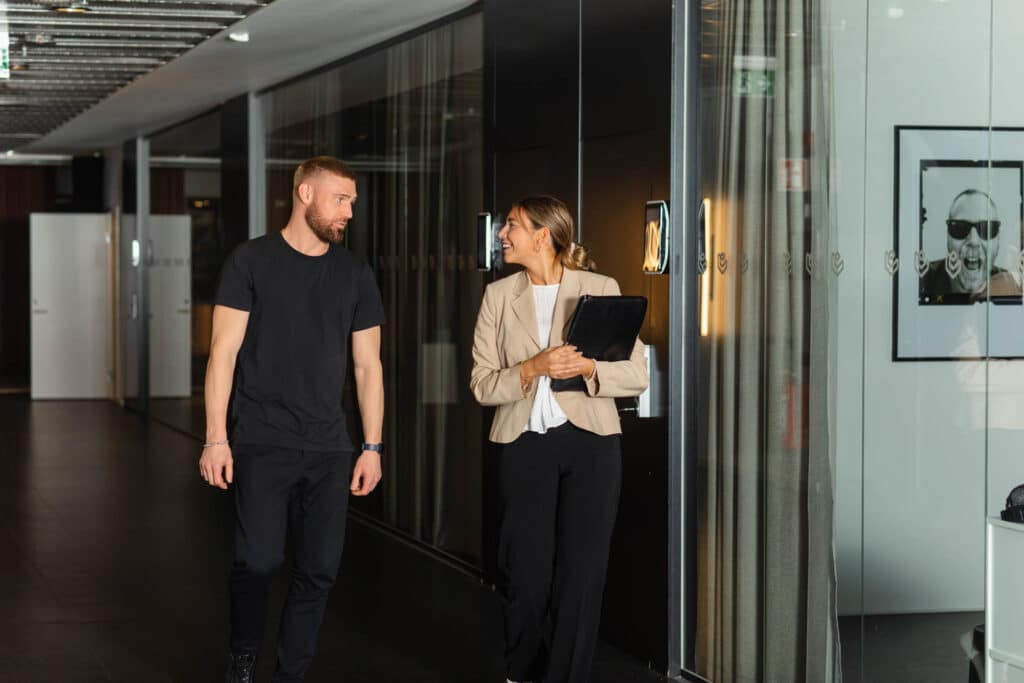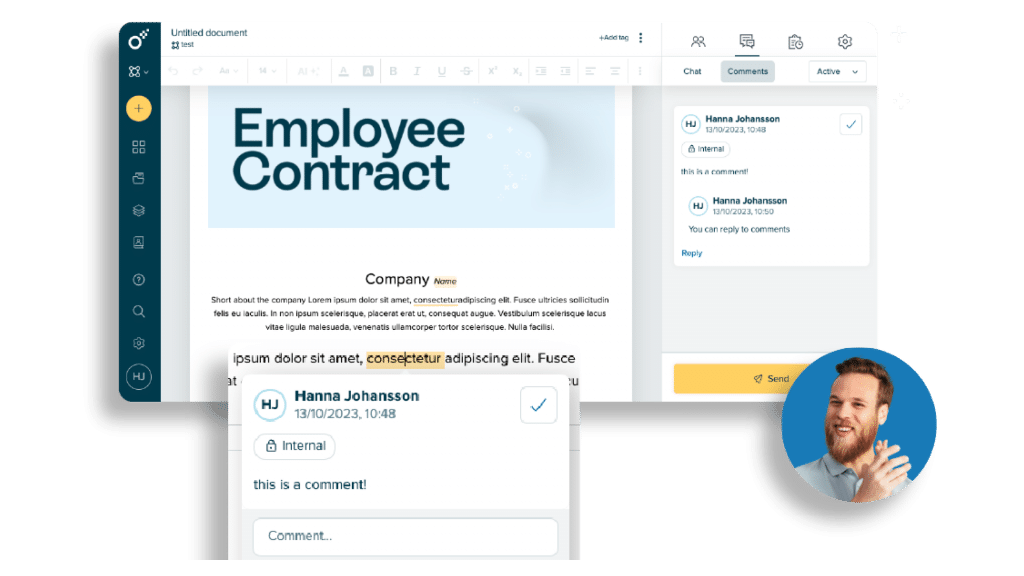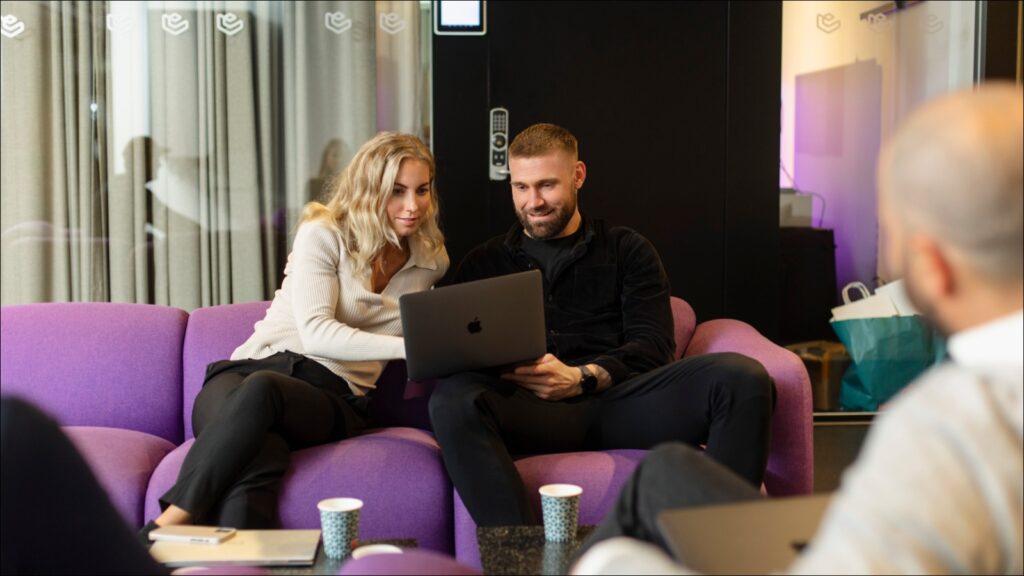Hej HR-expert Benjamin Böhmer
Hej HR-expert Benjamin Böhmer

Hi Benjamin! Tell us a little bit about you!
I’ve been working in HR, or in People & Culture as I would call it, for around 15 years now. I started my career in consultancy and was then a business partner at a global e-commerce company. In the years leading up to my current self employment I was director and vice president of people & culture at companies mainly based in Berlin.
What experience do you have as an HR consultant?
For the last 15 years I have collected a vast amount of experience. I focus mainly on operations, including contracting, services and payroll. This HR operational work also consists of recruiting strategy, meaning scaling the organisation to a certain number of people, which I support by finding the right way from both a time and cost perspective. I’m really passionate about everything regarding people satisfaction, people engagement, retention, leadership and feedback and opportunities within the organisation. Basically everything you need to do to keep the people onboard.
What made you choose to work in HR?
I avoid the term HR, and instead like to call it “people & culture” because that is the heart of our work. I believe it is the people that makes the organisation useful, because without the people there would be nothing. If the organisation does not have the right people, it will not be successful. I want to be a part of making organisations better by creating an environment where people can feel satisfied and also be able to fulfill the personal goals in their career.
What is the biggest HR-challenge that you have handled in your career?
I strongly believe working in HR is already a challenge in itself and you never know what will come up. But for me, a particular challenge has been the expansion to various countries within Europe in a very short space of time, including a rapid growth in the number of employees. It’s always a challenge to find the right employees in a short period of time.
Give us some examples of measures you have taken to improve the work environment for employees in a company.
I believe that nurturing leadership is crucial for improving the work environment. People are different and have individual needs. If a manager succeeds in meeting the individual’s needs this can have a great impact on work satisfaction. Work-life balance is also very important in an organisation. One other measure was implementing a 360° feedback system where each employee was able to receive and give feedback. This results in more transparency, clear understanding of expectations and targets as well as development opportunities.
In your view, what is the best way to create a positive working culture in a company?
I would say that the following four points are particularly important:
- Transparency. Everyone needs to know the expectations.
- Appreciation. You have to show that you don’t take it for granted when someone does a good job.
- Challenges. People like to be challenged, develop themselves and contribute to the company.
- Support. Being supportive as a leader is important, in particular, helping the employees to find their own solutions.
What forms of HR tech solutions have you used to improve the workflow (e.g. HR system, recruitment system, reference taking, etc.)?
I believe an HR information system is essential as it makes your work so much easier enabling you to document everything you need in an easy and organised way. A recruiting system is also important in order to track the different stages of the application cycle as well supporting the communication with potential new recruits. I am also a big fan of employee survey tools, because if you do not have this in a digital form it takes a lot of time to go through it manually.
How, in your opinion, is the best way to handle conflicts between workers?
It’s important to understand the different perspectives and then find a compromise as there is usually no right or wrong. Finding an alignment between employees is usually the right approach, how and in what way depends on the situation of course.
How should a manager go about evaluating an employee’s performance?
Performance measures and their results are important to evaluate. This is also correlating with work quality. Moreover you need to evaluate customer satisfaction, and from a HR perspective this requires you to take employee satisfaction into account. Team and culture fit is also important, meaning how you align with the organisation and adding value to that by creating a great place to work. Last but not least you need to evaluate potential, meaning whether or not this employee can grow in the organisation.
What do you feel is the biggest challenge for the leaders you guide and help?
Understanding their responsibility. They have an expert role, and therefore they always try to do everything themselves, but being a leader actually means being a person who gives guidance and support in order to make the people around you better. As a leader you have to recognice that you cannot always do everything on your own, instead, the challenge lies in taking a step back and focusing on how to motivate and make the people around you better. Having an empowering environment is the key to making that happen.
And how have you been able to help these leaders with their challenges?
I help guide the leaders in how to take a step back, because in this case you can then build a powerful and self-sufficient team.
Give examples of how you improved career opportunities for employees?
I once had an employee who wanted to begin studying. We sat down to find a way to let the person continue working with our organisation but study at the same time. We both made a compromise to find a solution, which made more sense instead of losing this valuable employee. Organisations sometimes need to rethink their normal way of thinking and try to deal with these kinds of situations in a more flexible way.
What are your best tips for entrepreneurs and managers to get engaged and high-performing employees?
Make your employees accountable for their actions and results. Believe in them, trust them, let them be able to fail and give them support in what they need. Don’t tell experienced people how to do something, what to do and not to do. Trust them, thus they are the key factor for the success of the organisation.
Thank you, Benjamin!

































































































